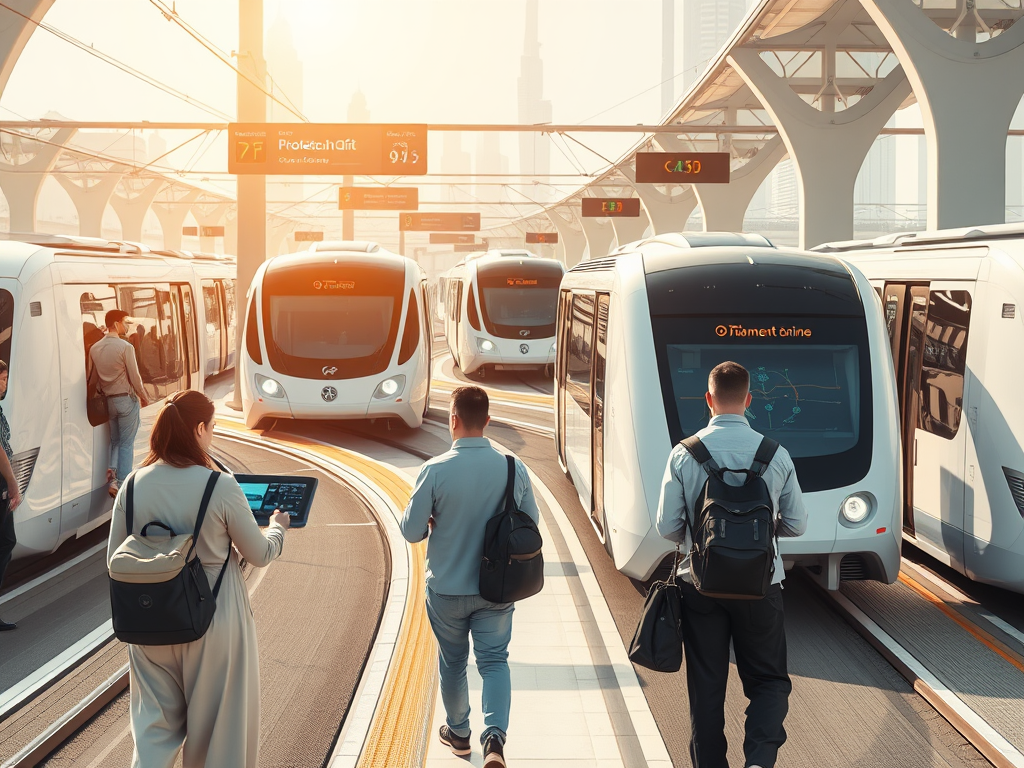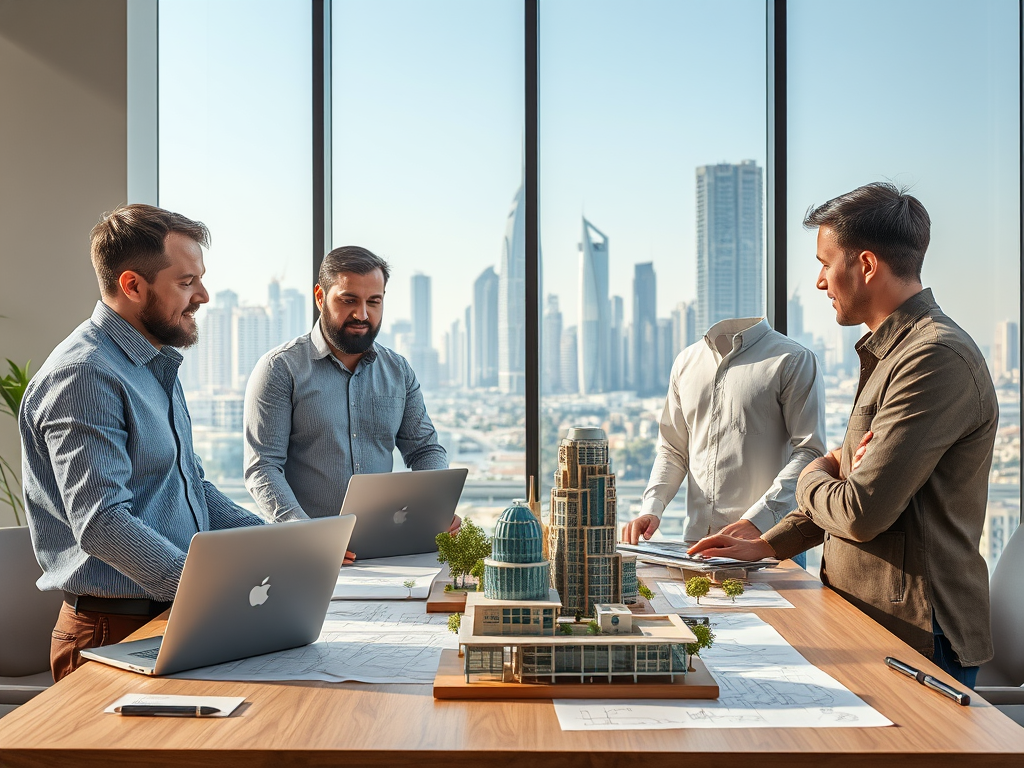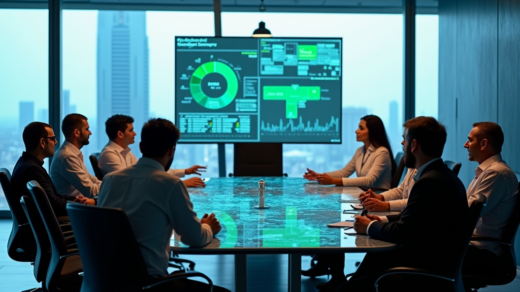Dubai is rapidly emerging as a global leader in smart city technologies, showcasing a vast array of investment opportunities that promise innovation and sustainability. As urban areas face increasing challenges—from congestion to environmental concerns—the need for smart solutions becomes paramount. This article explores the current investment trends in Dubai, focusing on key areas such as technology integration, infrastructure enhancements, and sustainable development practices. By understanding these trends, investors can identify potential areas for growth and collaboration within Dubai’s futuristic landscape. With the city’s strategic initiatives and public-private partnerships, the outlook for investment in smart city technologies is incredibly promising.
The Rise of Smart City Initiatives

Dubai has positioned itself as a pioneer in smart city initiatives, aiming to enhance the quality of life for its residents while promoting economic growth. The city’s government has launched several projects that leverage technology to improve urban living. A few major initiatives include:
- Smart Traffic Management: Investments focus on reducing congestion through intelligent traffic systems that monitor and respond to real-time data.
- Smart Utilities: Technologies like IoT and AI are utilized to improve water and energy efficiency, ensuring sustainable resource management.
- Public Safety Enhancements: Investments in surveillance, drone technologies, and emergency response systems ensure a safer urban environment.
These initiatives drive a growing demand for investment in cutting-edge technologies that support these objectives. The private sector, particularly technology firms, stands to gain from this boom by providing solutions tailored to the unique challenges of urban living.
Investment in technology integration is at the forefront of Dubai’s smart city strategy. The blend of advanced technologies—such as IoT, AI, and big data—provides immense benefits for urban management and services. Investors can capitalize on opportunities that integrate various technological platforms to streamline operations and improve efficiency. Some key areas of focus include:
- Smart Transportation: Encouraging investment in autonomous vehicles and integrated public transport systems.
- Smart Waste Management: Investing in automated waste collection and recycling solutions that enhance sustainability.
- Digital Infrastructure: Supporting the expansion of high-speed internet and 5G connectivity across the city.
By fostering technological integration, Dubai aims to elevate its global standing as a technological hub, which in turn increases the attractiveness of investment opportunities in the region.
Infrastructure Development as a Catalyst for Growth

The infrastructure development in Dubai plays a vital role in the success of its smart city initiatives. Massive investments in transportation, housing, and public facilities are essential for supporting a fully integrated smart city ecosystem. Dubai’s ongoing projects include:
- World-Class Public Transport: Initiatives like the Dubai Metro expansion and the introduction of smart bus services.
- Residential Developments: Building smart homes equipped with the latest sustainable technologies that promote energy efficiency.
- Green Spaces: Investing in parks and recreational areas to improve the quality of urban living.
As infrastructure continues to evolve, it creates a solid foundation for enhancing smart city functionalities while attracting foreign investments that are pivotal to Dubai’s economic growth.
Sustainability Efforts and Their Importance
Sustainability is a central theme in Dubai’s smart city ambitions, with significant investments aimed at creating eco-friendly urban environments. The Dubai Clean Energy Strategy 2050 is a testament to the city’s commitment to developing green technologies. Key sustainability efforts include:
- Renewable Energy Projects: Investments in solar energy farms and other renewable sources to reduce reliance on fossil fuels.
- Smart Water Management Systems: Technologies that monitor water usage and ensure conservation efforts are in place.
- Green Building Certifications: Encouraging compliance with sustainability standards in all new developments.
These sustainability initiatives not only enhance the quality of life but also appeal to environmentally-conscious investors looking to support ethical projects within burgeoning markets.
Conclusion
The landscape of investment trends in Dubai’s smart city technologies is robust and dynamic, characterized by significant government initiatives and public-private partnerships that foster innovation. As the city pushes forward with its ambitious smart city projects, opportunities for investment abound in areas such as technology integration, infrastructure development, and sustainability. Investors are encouraged to explore these sectors, as Dubai’s vision continues to unfold into a thriving, technologically advanced metropolis, paving the way for a sustainable future.
Frequently Asked Questions
1. What are the primary sectors attracting investment in Dubai’s smart city technologies?
Key sectors include smart transportation, utilities, infrastructure development, and sustainable energy projects.
2. How does Dubai plan to implement smart traffic management?
Dubai utilizes real-time data analytics and AI-driven solutions to monitor traffic flows and optimize traffic light patterns, reducing congestion.
3. What role does sustainability play in Dubai’s smart city initiatives?
Sustainability is fundamental, with a focus on renewable energy projects, efficient resource management, and green building practices.
4. Are there government incentives for investors in smart city technologies in Dubai?
Yes, the Dubai government offers a range of incentives, including tax benefits, streamlined regulations, and access to funding for innovative projects.
5. How can investors identify potential opportunities in Dubai’s smart city developments?
Investors can follow government announcements, engage with local technology firms, and attend industry conferences focused on urban development and innovation.


